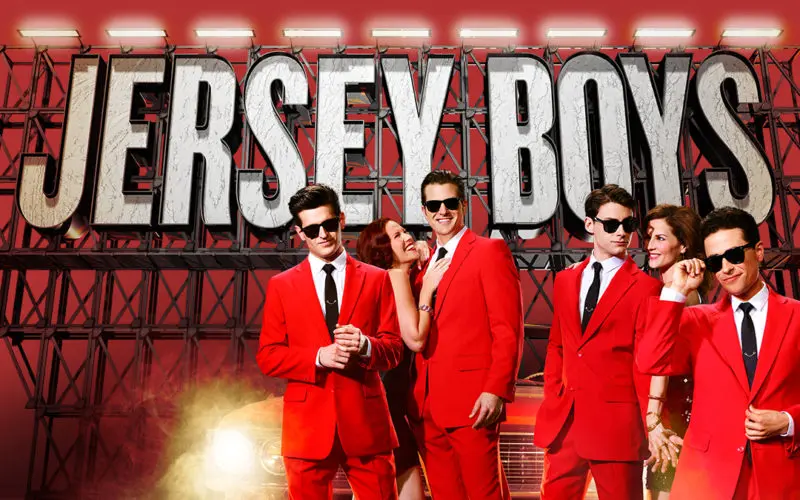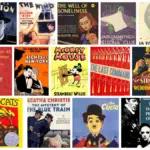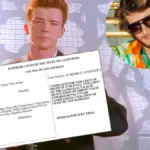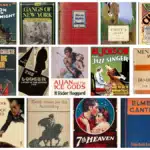If you’ve been following our Copyright Myth Project, you know that historical facts are not protected by copyright. But what if those facts have been invented? That’s the premise of a new opinion issued today by the Ninth Circuit.
“Jersey Boys” depicts the history of popular musical quartet the Four Seasons and the group’s leader Frankie Valli. The musical has been running since 2005, and various copyright lawsuits involving the show have been going on for nearly as long—since 2008 to be exact.
The “Jersey Boys” Copyright Lawsuit
In 2016, a federal jury in Nevada found that the writers, director and principal producer of the “Jersey Boys” musical had copied substantial portions of an autobiography of Tommy DeVito, a member of the band the Four Seasons, when writing their script. U.S. District Court judge Robert Jones vacated the jury’s ruling and granted judgment for defendants, finding that their use of DeVito’s book (which was co-written by Rex Woodard) qualified as a “fair use” as a matter of law.
Woodard’s widow Donna Corbello appealed to the Ninth Circuit, arguing that the trial judge didn’t want her to win and that the judge was “extremely upset” when the jury came down with its verdict. Among other things, Corbello pointed out that her copyright expert had testified that “Jersey Boys” copied 30% of the DeVito/Woodard book, including fictional dialogue that the authors made up.
Today’s opinion from the Ninth Circuit (Corbello v. Frankie Valli) doesn’t reach the issue of fair use, which was the basis for the judge’s decision to set aside the jury verdict. Instead, the panel, in an opinion written by Judge Marsha Berzon, finds that there was no infringement because the only alleged similarities were of unprotectable facts.
Most books—even works of nonfiction—contain creative expression that’s protected by copyright. But the protection given to writers of nonfiction works is pretty limited. Even though we just celebrated Labor Day, let’s not forget that the primary objective of copyright isn’t to reward the labor of authors, but rather “to promote the Progress of Science and useful Arts.”
Therefore, courts have repeatedly cautioned that, just because someone may be “first” to publish a historical fact or may have worked really really hard to uncover the fact, this doesn’t make the underlying fact subject to copyright protection.
The “Asserted Truths” Doctrine
The Ninth Circuit’s opinion in Corbello contains an in-depth discussion of a number of the claimed similarities between “Jersey Boys” and the DeVito/Woodard book, finding that each similarity involves only non-protectable elements of the book.
But the most interesting aspect of the court’s opinion is its discussion of a copyright doctrine sometimes referred to as “copyright estoppel” (a term which the court eschews in favor of the “asserted truths” doctrine). Basically, if an author asserts that his book contains a truthful account of the facts, he won’t be able to later argue otherwise.
In the introduction to her recent law review article “Truth, Lies and Copyright,” professor Cathay Smith rather playfully asserts that “courts should apply copyright law’s factual estoppel doctrine to treat fake facts as unprotectable facts in infringement cases where an author previously held out fake facts as facts, with the intent that the public rely on the fake facts as facts, if the public could believe the fake facts to be true.”
There have been a number of examples of courts treating as fact any elements of a work that an author has presented as factual, even if the party later asserts in litigation that aspects of the work were “made up” (and therefore entitled to full copyright protection). Claimed fiction that has been treated as facts for copyright purposes under the “copyright estoppel” or “asserted truths” doctrine include a novel hypothesis about the cause of the Hindenburg disaster (Hoehling v. Universal City Studios, Inc.); a theory that John Dillinger was not killed by law enforcement and instead retired to the West Coast (Nash v. CBS, Inc.); and a “true crime” book with fantastical stories (Houts v. Universal City Studios, Inc.).
In the case of the DeVito/Woodard book, the court found that the authors expressly and repeatedly held out the book as a factual account of the history of the Four Seasons, with the text representing that it is “historically accurate, not historical fiction.” The Ninth Circuit therefore found the “asserted truths” doctrine applies, even though the book at issue in the case had not been published at the time it was allegedly copied.
The court also held that the asserted truths doctrine “applies not only to the narrative but also to dialogue reproduced in a historical nonfiction work represented to be entirely truthful.” What this means is that questionable assertions that an account is truthful can prevent an author from later claiming that part of a work is fiction. The court did leave some wiggle room for a case in which extensive dialogue indicates that the work is partially fictional (such as a biography of an ancient politician). However, in Corbello, the co-author DeVito was purporting to accurately document conversations in which he actually participated, so this potential “exception” to the asserted truths doctrine doesn’t apply.
Because the allegedly infringed work emphatically represented itself as a nonfiction autobiography, the Ninth Circuit concluded that the “Jersey Boys” musical did not infringe any of the protectable elements of the book. Therefore, the court affirmed the Nevada district court’s decision to grant judgment in favor of the defendants—albeit on different grounds.
So, as election season moves into full swing, let’s all keep in mind that even “Fake News” may be treated as fact—at least in the world of copyright.






